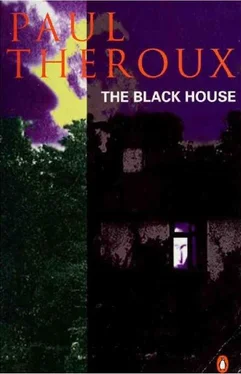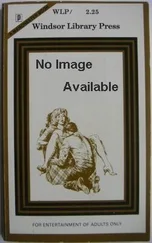Paul Theroux - The Black House
Здесь есть возможность читать онлайн «Paul Theroux - The Black House» весь текст электронной книги совершенно бесплатно (целиком полную версию без сокращений). В некоторых случаях можно слушать аудио, скачать через торрент в формате fb2 и присутствует краткое содержание. Год выпуска: 1996, Издательство: Penguin Books, Жанр: Современная проза, на английском языке. Описание произведения, (предисловие) а так же отзывы посетителей доступны на портале библиотеки ЛибКат.
- Название:The Black House
- Автор:
- Издательство:Penguin Books
- Жанр:
- Год:1996
- ISBN:нет данных
- Рейтинг книги:4 / 5. Голосов: 1
-
Избранное:Добавить в избранное
- Отзывы:
-
Ваша оценка:
- 80
- 1
- 2
- 3
- 4
- 5
The Black House: краткое содержание, описание и аннотация
Предлагаем к чтению аннотацию, описание, краткое содержание или предисловие (зависит от того, что написал сам автор книги «The Black House»). Если вы не нашли необходимую информацию о книге — напишите в комментариях, мы постараемся отыскать её.
The Black House — читать онлайн бесплатно полную книгу (весь текст) целиком
Ниже представлен текст книги, разбитый по страницам. Система сохранения места последней прочитанной страницы, позволяет с удобством читать онлайн бесплатно книгу «The Black House», без необходимости каждый раз заново искать на чём Вы остановились. Поставьте закладку, и сможете в любой момент перейти на страницу, на которой закончили чтение.
Интервал:
Закладка:
“And a color television,” he was saying. It was on, a large screen swimming with yellow and blue, and the deep orange face of a talking man. He felt obliged, having made the comment, to watch it. The man was talking very slowly, as if to a child, and tearing a newspaper into strips.
“Not ours,” said Claudia. “It’s on loan. The BBC gives them to all their senior staff.”
“I’ve never seen one before,” said Munday, and at a loss for words he went on watching the program. Now a small-breasted girl was singing a nursery rhyme in a halting way and waltzing foolishly with a stuffed bear.
“Do sit down, Alfred.” Claudia picked up a glass. “Are you sure you want tea or would you like something stronger? I’ve been drinking gin ever since you rang—for courage!”
“Tea’s fine,” said Munday. He sat in a chair which had a spoon-shaped seat. He swiveled awkwardly.
“I was so surprised to hear from you.”
“Really? I thought you might have seen my letter to The Times ”
“We get the Guardian” said Claudia. “Not that I ever read it. That Northern Ireland business is so awful. Have you been back long?”
“A little over a month—we’re in the country. Dorset.”
“Dorset’s lovely,” said Claudia. “I can’t remember the last time I saw you. Was it—?"
“Years ago. That party,” said Munday. “At Margaret’s.”
“Poor Margaret.”
“Jack’s driving a bus.”
“He deserves to,” said Claudia, pouring herself another gin. “They ruined my theory, you know, breaking up like that in Africa. That ludicrous court case.”
“What theory is this? You never told me.”
“About divorces. As an anthropologist you might be interested,” said Claudia. She sipped her gin. “Not very complicated. It’s just that everyone says that marriages go to pieces in the tropics. That’s a myth. Why should they break up there? There’s no housework to do, the kids are off your hands, no worries. It’s like a holiday. I don’t know where these writers get the idea it’s such a great strain on a marriage— that scene at the club where the outraged husband throws his drink into the lover’s face and says, ‘You’ve been seeing my wife.’ That sort of rubbish.”
“I’ve seen it happen, but not in those precise words.”
“It never happens! No one cares. Do you remember when we did those Maugham plays? ‘Sybil, have you betrayed me?’ and all that?”
“The Uganda Players,” said Munday.
“What a farce,” said Claudia. “And that pansy director—I forget his name. Those plays made me laugh.
I don’t know why I joined that silly drama group. Emma wasn’t in it, was she?"
“She had her painting to occupy her,” said Munday. “And we were at the camp.”
“You lived so damned far from town,” said Claudia. She smiled. “I’ll bet she’s not doing any painting here.”
“How do you know?”
“I know. She’s doing housework, going to the launderette, shopping, cooking. What a bore. I know— that’s what / do. That’s my theory—marriages don’t break up when people go to the tropics, they break up here, when they get back. There’s a name for it.” Claudia snapped her fingers.
“Culture shock,” said Munday.
“Right, right—culture shock. There’s none of it in Africa, but there’s masses here.”
“I suppose I’m having a bit of it myself,” said Munday. It slipped out, and he was angry with himself for having revealed it: she might ask why. But she hadn’t heard, she was still talking.
“I’m not saying that Martin and I are thinking of separating. We’re muddling along well enough. But it’s tough sometimes. You’ll see. You haven’t been in England for a long time, Alfred. Marriage is hard here.”
“It’s hard everywhere, let’s face it.”
“No, not in Africa—it’s easy there,” she said. “Everything is easy there, isn’t it?”
“Is it?”
“You know it is!” she said. “But here—it’s part of my theory—every married couple is on the verge of divorce.”
“You don’t say.” He could see she was drunk; he wanted to calm her, and leave.
“You see, marriage is grounds for divorce,” she said. “Marriage as we know it. Young people don’t even think about it any more.”
“So the younger sociologists say,” said Munday.
“But marriage has never been sacred among the Bwamba. They’re always swapping partners. I worked it out once—the divorce rate among the Bwamba is twenty times that of the English. As for adultery— they simply choose a woman and stick a spear in the dirt in front of her hut to show she’s occupied. The husband won’t interrupt.”
“Did you bring your spear with you today?” She laughed coarsely.
Munday said, “I’ve got a train to catch.”
“You and your Africans,” she said. “Didn’t you get sick of them? I’m sick of them. I’m not a racist, I’m just sick of them—seeing them, hearing about them. They’re always on television, and Battersea’s full of them. Why don’t people ever talk about the Chinese? There are more Chinese than there are Africans, and there’s more to talk about.” Claudia had finished her drink. She licked the lemon peel and said, “The Head Prefect at Alice’s school is an African. That’s why they made him Head Prefect.”
“He’s actually a West Indian,” said Alice, entering the room with a tray. She looked at Munday and said hello with a coolness that seemed so calculated he could not reply immediately. He thought: She knows me.
“Just put it down there,” said Claudia.
“You’re a big girl now,” said Munday at last. “Sixteen,” said Claudia. “Though she thinks she’s a few years older.”
“Mummy, please.”
“She hates me,” said Claudia. “It’s a phase.”
Alice was attractive; she wore denim slacks that fit her high buttocks tightly, and her hair was long, in a single rope of braid, with the blondness that had gone out of her mother’s. She poured the tea and brought Munday his cup and a plate with a slice of fruitcake on it. Munday smiled, but she did not respond. She maintained that sceptical, knowing look, which was an adult frown of accusation, worn deliberately, Munday guessed, for her mother’s former lover. It put Munday on his guard, but disturbed him, because it rubbed at the memory of his lust. All the old forgotten feeling he had had for the mother, who inspired nothing in him but a vague pity and shame for the woe in her eyes, came awake in the presence of the pretty daughter, for whom he felt a twinge of desire. And that awakening was enough of a reminder of his lust for the mother to make him uneasy.
He said, “I have to be at Waterloo—”
The phone rang in another part of the house.
“Excuse me,” said Claudia, and went to answer it. Alice was seated cross-legged on the floor, her hand lightly resting on her crotch. “Where’s your hat?” she asked. “You used to have a funny hat.”
“I still have it somewhere,” said Munday. “You do have a good memory.”
“I remember you,” she said. Her stare was as solemn as any adult’s.
Munday looked away. He had seen the same face at the bedroom door. He said, “How do you like living in London?”
Alice said, “Mummy fucks my friends.”
Munday was shocked by the simple way she said the brutal sentence, but managed to say, “Oh? And do you disapprove of that?”
“It embarrasses me,” said Alice, as simply as before.
“Yes, I suppose it does,” said Munday. “But don’t be too hard on her. I mean, don’t judge her too harshly. Maybe you’ll see when you’re her age that there’s not that much love around. And it can be a frightening thing—” He stopped, at the girl’s stare, her look of total innocence; he felt he could only disappoint her if he went on.
Читать дальшеИнтервал:
Закладка:
Похожие книги на «The Black House»
Представляем Вашему вниманию похожие книги на «The Black House» списком для выбора. Мы отобрали схожую по названию и смыслу литературу в надежде предоставить читателям больше вариантов отыскать новые, интересные, ещё непрочитанные произведения.
Обсуждение, отзывы о книге «The Black House» и просто собственные мнения читателей. Оставьте ваши комментарии, напишите, что Вы думаете о произведении, его смысле или главных героях. Укажите что конкретно понравилось, а что нет, и почему Вы так считаете.












